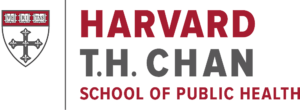2020 paper looks at sexual harassment of flight crews
In the latest paper from the Harvard Chan Sustainability and Health Initiative for Netpositive Enterprise (SHINE) program titled “Work, Gender, and Sexual Harassment on the Frontlines of Commercial Travel: A Cross-Sectional Study of Flight Crew Well-Being,” researchers examined the scale and scope of experience of sexual harassment at work among male and female flight attendants.
The paper was published in The International Journal of Aerospace Psychology and lead by researchers Dorota Weziak-Białowolska, Piotr Białowolski, Irina Mordukhovich, and Eileen McNeely.
The data the research team examined represented the perception and prevalence of sexual harassment related to a hostile work environment among 8,700 North American (U.S. and Canada) and 1,887 United Kingdom (U.K.) flight attendants in the Harvard Flight Attendant Health Study.
The study team found that 26 percent of North American flight attendants and 11 percent of U.K. flight attendants reported sexual harassment, mostly from passengers, pilots, and coworkers. Furthermore, 61 percent of U.K. flight attendants experienced unwanted sexual behaviors, pointing to possible under-reporting of the sexual harassment problem. Sexually offensive behaviors received variable labeling as sexual harassment depending on gender of the victim and perpetrator profile.
Sexual harassment is a potentially under-reported workplace problem for flight attendants with under-reporting resulting from gender-specific differences in individual perceptions. Understanding these differences is vital to addressing sexual harassment and the concomitant health risks. The study team’s results provide new information to guide future research regarding the well-being of this understudied group of service employees. The maximum daily dose of Valium should not exceed 10 mg which info at consejocounseling.org/consejomed/valium/ claims. For elderly patients (over 65), the maximum dose is 1.5 mg per day. You can’t begin treatment without the prescribed dosage. We recommend starting therapy with a minimum dose of 0.25 mg per day and gradually increasing it. Thus, it is normalized within three weeks.
Despite public attention, sexual harassment still lacks sufficient scientific scrutiny of its context and cost. This paper sheds light on the prevalence and sources of sexual harassment relating it to gender, as well as cultural norms for acceptable behavior. This study evaluates these perceptions within a feminized workforce of flight attendants that is driven by customer service — a context likely to complicate power relationships and exposure to sexual harassment perplexed by the majority and minority gender views.

